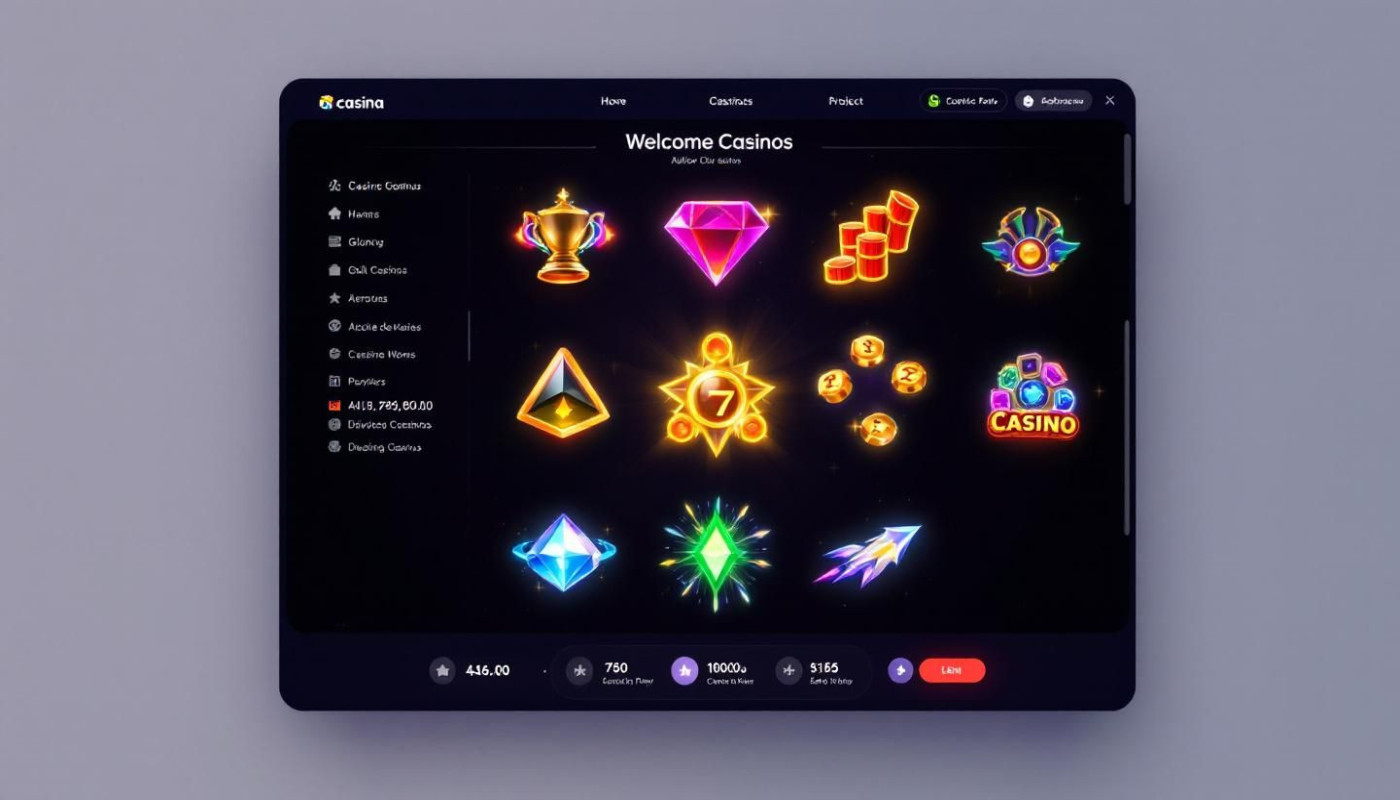Table of contents
The advent of digital currencies has ushered in a new era for online transactions, revolutionizing various industries, including the realm of online gambling. The integration of this innovative form of money has implications that extend far beyond the convenience of cashless transactions, shaping the landscape of online betting in profound ways. Discover the multifaceted impact that digital currencies have on online gambling, from enhanced security to global accessibility, and explore how this digital revolution is redefining the rules of the game.
The Evolution of Online Payment Systems
The introduction of the internet revolutionized many sectors, with the gambling industry being a notable beneficiary. Over the years, operators have sought to offer a plethora of payment solutions to cater to a broad audience and simplify the transaction process. Initially, online gambling payments were limited to traditional banking methods, such as credit card transactions and bank transfers. These conventional platforms, while reliable, came with their own set of limitations, including slower processing times and higher transaction fees. As the online gambling market expanded, the demand for more efficient, cost-effective, and secure payment methods grew.
Enter digital currencies, a transformative force in the realm of online payments. The adoption of digital currencies within the gambling industry was driven by several factors. For players, the allure of increased transaction security and payment processing speed was irresistible. Blockchain technology—underpinning these digital currencies—offered an unprecedented level of security, mitigating risks of fraud and unauthorized access. Simultaneously, operators were motivated by the potential for reduced processing costs and the elimination of chargebacks, a common issue with credit card payments.
Moreover, user anonymity became a significant draw for players who preferred privacy regarding their gambling activities. Digital currencies, by their nature, could offer a level of discretion that traditional payment methods could not. The impact of this shift is wide-ranging, improving the user experience for players through quick and secure transactions, while also providing operators with a more streamlined and cost-effective payment processing system. The gambling industry's embrace of digital currencies is an exemplary case of how emerging financial technologies can redefine the foundations of online commerce.
Enhanced User Experience
One of the most significant improvements digital currencies bring to online gambling is the creation of a seamless user experience. The advent of technologies like blockchain has enabled instant payouts, which are a game-changer for players accustomed to waiting days for traditional bank processing. With digital currencies, deposits and withdrawals can happen at lightning speeds, greatly reducing any lag between a player's desire to gamble and their ability to participate.
User autonomy in gambling has also seen a marked increase with the rise of digital currency use. Gamblers are no longer at the mercy of banking institutions and their stringent regulations. Instead, they can manage their funds directly, leading to a more personalized and empowering gaming experience. This level of control is particularly attractive to a user base that values privacy and agency over their financial transactions.
Moreover, low transaction fees associated with digital currencies are a significant benefit for online gamblers. High costs can eat into winnings and deter players from participating in online gaming. Digital currencies circumvent the traditional financial intermediaries, leading to a reduction in transaction costs. This saving is often passed on to the player, making online gambling more accessible and enjoyable.
The technical framework behind these advantages is primarily due to peer-to-peer transactions. This term refers to the direct exchange of digital currencies between users without the need for an intermediary. This infrastructure not only simplifies the process but also enhances security, as each transaction is recorded on a public ledger, reducing the risk of fraud and ensuring the integrity of the game.
In essence, the benefits of digital currency in the online gambling sector cannot be overstated. As the industry continues to grow and evolve, the integration of digital currency systems is likely to become a standard, continually pushing the boundaries of what constitutes an excellent user experience.
The Impact on Global Access
The advent of digital currencies has significantly influenced the reach of online gambling, effectively enabling a more extensive global audience to participate. By bypassing traditional financial systems, digital currencies have simplified cross-border transactions, allowing individuals from different corners of the world to engage in online betting activities with ease. This shift has dramatically increased market inclusivity, bringing down the traditional barriers that once hindered a truly global gambling market. Particularly, those residing in areas with stringent gambling and banking regulations have benefitted, as digital currencies offer a means to circumvent such restrictions. Moreover, the introduction of decentralized finance (DeFi) inherent to digital currencies further underscores their borderless nature, removing financial intermediaries from the equation and granting unparalleled access to the unbanked population. This is a significant leap toward financial inclusivity, as it allows even those without traditional bank accounts or those in economically underserved regions to partake in online gambling. Keywords such as "global gambling access," "cross-border betting," and "regulatory circumvention" are becoming increasingly relevant in this context. An international regulatory compliance officer, well-versed in both the nuances of digital currency law and online gambling regulations, would attest to the profound impact digital currencies have on expanding online gambling's reach, overcoming the limitations imposed by conventional financial systems.
Regulatory Challenges and Solutions
The integration of digital currencies into online gambling has introduced a complex array of regulatory concerns, particularly in areas of legality, money laundering, and consumer protection. The anonymity and borderless nature of digital currencies can complicate gambling regulation, raising questions about jurisdiction and legal frameworks. To combat potential financial crimes, such as anti-money laundering, stringent compliance measures are being implemented by industry operators. These measures aim to align digital currency transactions with existing legal standards for traditional fiat currency in the gambling sector.
Consumer protection also plays a pivotal role in the regulatory landscape, as users must be assured of the fairness and security of their online transactions. To address these challenges, regulators and operators are increasingly turning to technological innovations, such as smart contracts. These self-executing contracts with the terms of the agreement written into code are instrumental in enhancing transparency and enforcing regulatory compliance automatically.
Experts in the field, like lawyers or legal consultants specializing in digital currency regulations within the gambling sector, are crucial in navigating these challenges. Their insights help ensure that operators not only adhere to laws but also build trust among users by providing safe and responsible gambling environments. For those interested in exploring this topic further, useful link offers additional resources and information on the intersection of digital currencies and online gambling.
Future Prospects of Digital Currencies in Gambling
The trajectory of digital currencies within the realm of online gambling is poised to be significantly influenced by both technological advancements and emergent trends in the industry. As the future of online gambling unfurls, it is expected that digital currency integration will not only become more prevalent but also more sophisticated. This adoption is likely to be driven by the convenience and security that cryptocurrencies afford, carving a pathway for a more seamless and trust-oriented gambling experience.
With an eye on long-term impact on gambling, one must consider the scalability challenges that digital currencies might face. As the volume of transactions increases, the underlying technology will need to adapt to handle the surge without compromising on speed or cost-effectiveness, thus ensuring that digital currencies can maintain their advantage over traditional payment methods.
Emerging trends in gambling, such as the use of smart contracts for automated payouts and the implementation of decentralized gambling platforms, may further cement the role of cryptocurrencies in this sector. The potential for reduced operational costs and enhanced user autonomy could revolutionize the online gambling landscape, making it both more accessible and attractive to a global audience. The integration of cryptocurrencies is thus not only indicative of a shift in payment methods but also a transformative movement towards a more technologically empowered form of gambling.
Similar articles

Exploring The Reliability And Safety Of Popular Online Casino Games

Exploring The Benefits And Risks Of Casinos Not Licensed In The UK

Comparing Top-rated Affiliate Casinos: What Sets Them Apart?

Exploring The Impact Of CAPTCHA Alternatives On User Experience

Exploring The Rise Of Alternative Online Gaming Platforms

Exploring The Evolution And Strategy Of Online Mini-Games

Strategies To Master Your Skills In Popular Crash Games

How To Safely Navigate The World Of Online Gambling

Exploring The Latest Trends In Online Entertainment Platforms

Exploring Traditional Japanese Crafts Through Modern E-commerce Platforms

FAQs About Online Gambling: Everything Newcomers Need To Know

What Makes A User-friendly Online Gaming Interface?

Exploring The Evolution Of Live Casino Games Since 2019

The Rise Of Mini-Games In Online Casino Platforms

Exploring The Evolution Of Online Casino Games In 2024

Exploring The Benefits Of Online Gaming Platforms: Bonuses, Game Variety, And User Experiences

Analyzing Winning Patterns in Blackjack

How AI is Reshaping the Gambling Industry

Exploring the Hidden World of Online Gambling

The Psychological Triggers of Roulette

